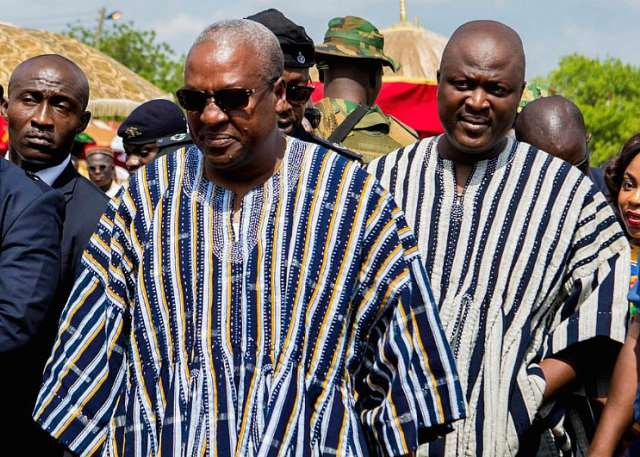This blog is managed by the content creator and not GhanaWeb, its affiliates, or employees. Advertising on this blog requires a minimum of GH₵50 a week. Contact the blog owner with any queries.
DjQwequ Blog of Saturday, 19 July 2025
Source: Emmanuel Jacob Amissah

The Asantehene, Otumfuo Osei Tutu II, has thrown his weight behind Ghanaian businessman Ibrahim Mahama following his company’s landmark $100 million acquisition of the Black Volta Gold Project. Otumfuo has called on the government and key players in the mining industry to prioritize the allocation of large-scale concessions to capable local investors instead of foreigners.
“Why should we continue giving our lands to foreigners when capable Ghanaians like Ibrahim Mahama are ready to invest?” Otumfuo questioned, emphatically declaring, “Let Ghanaians own the gold.”
The revered monarch made these remarks during a recent engagement on Ghana’s natural resource development. His comments follow the announcement that Ibrahim Mahama’s company, Engineers & Planners (E&P), has secured a $100 million facility from the ECOWAS Bank for Investment and Development (EBID) to acquire the Black Volta Gold Project located in the Upper West Region.
Describing the deal as a significant and progressive move, Otumfuo urged regulatory authorities and stakeholders to support similar ventures led by local entrepreneurs. He emphasized the need to build local capacity and ensure that the country’s wealth directly benefits its citizens.
“We must empower our own people. If we truly want to see development, we need to stop handing everything to foreigners,” the Asantehene added.
Engineers & Planners, a wholly Ghanaian-owned firm with a strong track record in the mining and construction sectors, is poised to begin operations at the Black Volta Gold Project once all regulatory processes are completed. The project is expected to significantly boost the company’s profile and Ghana’s local mining sector at large.
Industry analysts have praised the move as a game-changer in the country’s mining industry, which has for decades seen dominance by multinational corporations. With increasing calls for local content and ownership, the support of traditional leaders like Otumfuo adds weight to the broader conversation on Ghanaian resource sovereignty.
